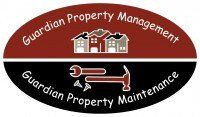Ultimate Guide to Single-Family Home Property Management: What Every Landlord Should Know

TL;DR
- An assumable mortgage allows a homebuyer to take over the seller’s existing loan instead of applying for a new one.
- This can mean inheriting a lower interest rate, original loan terms, and predictable monthly payments.
- FHA, VA, and USDA loans are typically assumable, while most conventional loans are not.
- Buyers must qualify with the lender and compensate the seller for their existing home equity.
- In high-interest-rate markets, assumable mortgages can offer significant long-term savings.
- For sellers, offering an assumable loan can make a property more attractive and competitive.
Why an Assumable Mortgage Is Gaining Attention in Today’s Housing Market
As mortgage rates remain elevated, many buyers are searching for smarter ways to finance a home without locking into costly new loans. One increasingly attractive solution is an assumable mortgage, which allows qualified buyers to step into an existing loan rather than starting from scratch.
For buyers exploring assumable mortgage listings, this strategy can unlock access to lower interest rates, reduced closing costs, and more favorable loan terms than what’s currently available. Understanding how an assumable mortgage works can help you make a more confident, cost-effective decision.
What Is an Assumable Mortgage?
With an assumable mortgage, homebuyers can purchase a property by assuming the seller's existing mortgage loan. This option is particularly appealing when buyers want to benefit from lower interest rates, especially if rates have increased since the seller originally obtained the loan.
By taking over the seller’s mortgage, the buyer inherits the same financing terms, including the interest rate, remaining balance, and repayment schedule. This approach can reduce borrowing costs and provide a strategic alternative to traditional mortgage financing.
Why Choose an Assumable Mortgage?
In a market where 30-year mortgage rates hover around 7.19%, affordability has become a major challenge for many buyers. Here’s why assuming an existing loan can be a strategic advantage in this environment.
By assuming a mortgage, buyers can take over mortgage payments tied to an existing loan while preserving its original interest rate and repayment terms. This can make homeownership more accessible, even when market conditions are unfavorable.
Additionally, sellers benefit by offering assumable loans, as they create a compelling incentive for buyers to accept higher sale prices in exchange for better financing terms.
Some Examples of Assumable Loans
Not all mortgages can be assumed, so understanding which loan types qualify is critical. Below are the primary types of assumable home loans buyers may encounter.
FHA Loans
To assume an FHA loan, buyers must meet standard FHA eligibility requirements. This typically includes a minimum down payment of 3.5% and a credit score of at least 580.
USDA Loans
A USDA loan usually requires a minimum credit score of 620 and adherence to income and location limits. In most cases, USDA loans are assumed with new rates and terms, though certain family transfers may allow assumption under the original conditions.
VA Loans
Assuming a VA loan requires lender approval and an evaluation of the buyer’s credit profile. While buyers do not need to be veterans or active-duty service members to assume a VA mortgage, a credit score of 620 or higher is generally preferred. A 0.5% VA funding fee still applies.
Conventional Loans
Most conventional loans include a due-on-sale clause, making them non-assumable. However, certain adjustable-rate mortgages (ARMs) may qualify for assumption if specific financial requirements are met and the loan is not converted to a fixed rate.
How Does an Assumable Mortgage Loan Work?
Understanding the mechanics of loan assumption is essential before moving forward. Here’s how the process typically unfolds.
When you assume a mortgage, the remaining loan balance transfers to you, and you become responsible for future payments under the same terms. This includes the original interest rate and the monthly payment amount.
However, buyers must also reimburse the seller for any accumulated home equity. This equity payment is made at closing and functions similarly to a down payment. Buyers may pay this amount in cash or finance it through a second loan.
For example, if a home is worth $400,000 and the remaining mortgage balance is $250,000, the buyer would need to pay the seller $150,000 to complete the assumption.
How Much Does an Assumable Mortgage Cost?
While assumable mortgages can save money long term, buyers should understand the upfront costs involved. Here’s what to expect financially.
Buyers may need to cover closing costs and a significant equity payment if the home’s value exceeds the remaining loan balance. VA loans also include a 0.5% funding fee based on the outstanding loan amount.
For instance, if a home sells for $190,000 and the remaining balance is $115,000, the buyer must bring the $75,000 difference to closing.
How to Get an Assumable Mortgage Loan
Before pursuing an assumable loan, buyers should be prepared for several key steps in the approval process.
Check Assumability
First, confirm whether the mortgage is assumable, as most conventional loans do not qualify.
Creditworthiness & Financial Evaluation
Next, the buyer must apply to the lender and demonstrate sufficient income, assets, and credit to meet loan requirements.
Potential Cash Difference
Buyers should be prepared to bridge the gap between the remaining loan balance and the home’s current value, which can be substantial.
Title Transfer & Mortgage Payments
Once approved, the title transfers to the buyer, who then begins making monthly payments directly to the lender.
Lender Denial
If the lender denies the application, the assumption cannot proceed, and the buyer must continue their home search.
The Benefits of an Assumable Mortgage
Assumable mortgages offer several notable advantages for qualified buyers. Here’s why they can be appealing.
Lower Interest Rates
Buyers may secure a lower interest rate than what’s currently available, even if their credit score isn’t as strong as the original borrower’s.
Smaller Closing Costs
Certain loan fees are capped or reduced, often resulting in lower closing costs compared to traditional mortgages.
No Appraisal
In many cases, no appraisal is required, saving both time and money during the transaction.
The Disadvantages of an Assumable Mortgage
Despite the benefits, assumable mortgages are not without challenges. Here are the key drawbacks to consider.
Limited Eligibility
Only FHA, VA, and USDA loans are assumable, which limits availability for both buyers and sellers.
Large Down Payment Requirement
Covering the seller’s equity often requires significant upfront cash or a second loan.
Additional Closing Costs & Fees
Ongoing PMI, VA funding fees, and USDA guarantee fees may apply, increasing the total cost over time.
Conclusion
An assumable mortgage can be a powerful financing strategy for buyers navigating a high-interest-rate housing market. By assuming an existing loan, buyers may gain access to lower rates, reduced closing costs, and more predictable monthly payments.
However, success depends on lender approval and the buyer’s ability to cover the seller’s equity. When evaluated carefully, an assumable mortgage can offer a compelling and cost-effective path to homeownership.
If you’re exploring assumable mortgage listings or want expert guidance on whether assuming a loan is right for you, professional insight can make all the difference.
Founded in 1999,
has grown into a full-service property management company serving the Minneapolis and St. Paul metro area. With deep local expertise and streamlined systems, the team helps remove the stress and uncertainty from property ownership, allowing clients to focus on protecting and growing their investment.
To learn more about available opportunities or to get guidance tailored to your situation, connect with a trusted local expert today.
Address: 3001 Broadway St NE, STE 605, Minneapolis, MN 55413
Phone:
FAQs
Q1. What is an assumable mortgage, and how does it work?
Ans. An assumable mortgage allows a buyer to take over an existing loan’s terms, including the interest rate, after qualifying with the lender.
Q2. Can you assume a VA mortgage without being a veteran?
Ans. Yes, non-veterans can assume a VA mortgage, though lender approval is required and the seller’s VA entitlement may be affected.
Q3. Are assumable mortgage listings common?
Ans. Assumable mortgage listings are less common, but working with experienced real estate and lending professionals can help uncover viable opportunities.















